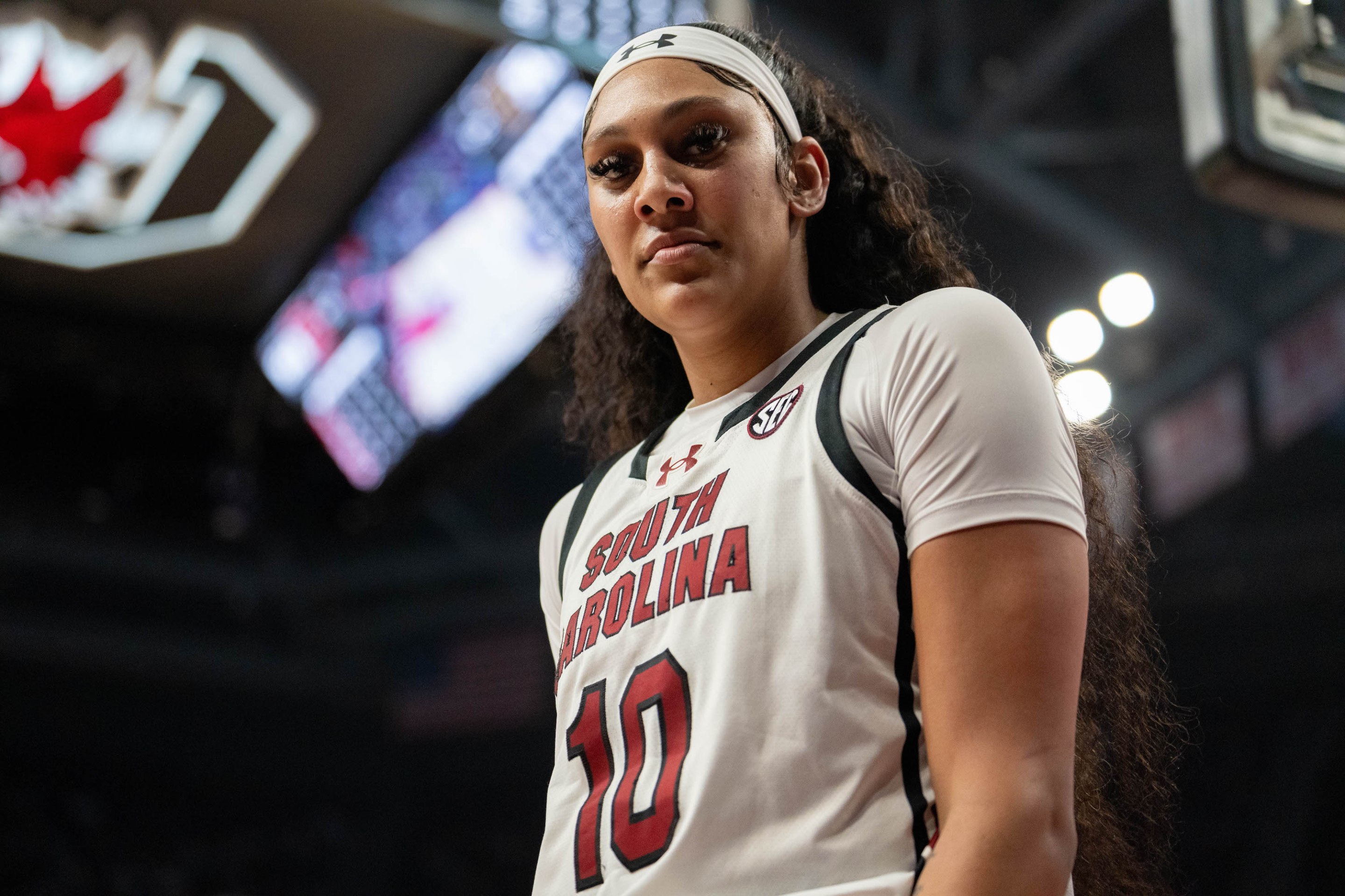If you looked at the names on this year's All-SEC women's first team, you wouldn’t know just how badly South Carolina left the rest of the conference in the dust. On Sunday, the No. 1 Gamecocks won their 47th straight SEC game and finished up their second straight unbeaten regular season. But when the SEC honors were announced Tuesday, only center Kamilla Cardoso represented South Carolina on the first team. Joining her were two players from LSU, and two from 22-7 Ole Miss. It’s less an omission than it is a clue to the Gamecocks' success: Being on a great team makes it hard for any one player to stand out. This season there is no better, deeper team in college basketball.
I could have written the same sentence last year—I more or less did—when it was common to see Dawn Staley rest her starters early and roll with her bench, like she was running four hockey lines. Some teams could hang with South Carolina for a quarter, but no one could survive the full game. Against the Gamecocks, no opponent was ever allowed a moment to catch their breath. So while I’m sympathetic to the rival coaches or fans who thought this might be the year, that maybe a team losing all of its starters and graduating the best recruiting class in school history was finally allowing the rest of the conference to catch their breath, I can’t be too sympathetic. They should have known better.
Nothing beats continuity in college sports. It’s why media voters looked at an LSU team returning the best player on a national championship winner, and called them preseason favorites. It’s why those same media voters ended South Carolina’s streak of 38 straight weeks atop the AP poll and slotted the Gamecocks in at No. 6 before this season began. At the time, that ranking seemed like a fair compromise between deference to the program and healthy skepticism. Staley needed to build a new team out of freshmen and bench players, and though she recruits at a level high enough to ensure a solid floor, there were still bound to be some transition pains.
But Staley herself wasn’t buying it. “It’s not a rebuild. It’s not a rebuild for us because we’re very talented,” she said at SEC Media Day in October. “I think when it’s all said and done, our players are going to rise to the challenge.” To quote another accomplished woman, South Carolina chose “continuity with change.” They would continue to be excellent, but they’d arrive at that excellence by different means.
Outside shooting was a weakness of the “Freshies” era. Last year in their Final Four game, an overmatched Iowa forced the Gamecocks to shoot by packing the paint and choking off lanes to Aliyah Boston. That strategy doesn’t always work, but it did seem like Iowa had called South Carolina’s bluff. They shot just 4-for-20 from outside in that game, many of those wide-open looks, and in one of the game’s more symbolic moments, Caitlin Clark straight-up waved Raven Johnson off.
Of the current team, only Johnson had started any games for South Carolina before this year—exactly three in two seasons. As a junior, and now a full-time starter, Johnson shoots a respectable 34 percent from outside, up from the 24 percent that got her waved off last year. She’s joined in the backcourt by Oregon transfer Te-Hina Paopao, a 48 percent three-point shooter, and junior Bree Hall, who's good for 41 percent from three. In past years, South Carolina's athleticism shone most on defense, where it allowed them to stay in front of opposing guards and dominate on the glass. This year, it shows up especially in transition: The Gamecocks play with a pace in the 91st percentile, a big jump from a pace in the 43rd percentile last year. Cardoso, the 6-foot-7 center enjoying a breakout season, runs the floor as well as any guard, and there might not be a more fun player to watch barreling down the court than Milaysia Fulwiley. (I've blogged this Fulwiley clip before, but let's watch it again, just to be safe.)
The seeds of this transformation were planted a while ago, rapid as it may seem. When she reflected on last year’s senior class, Staley praised Aliyah Boston, Brea Beal, and Zia Cooke for what they’d individually “sacrificed,” how they were content with fewer minutes and less shiny stats than recruits of their caliber on other teams. The fruits of that sacrifice are clear to see now: Yesterday's great bench can be tomorrow's great starters. There was one SEC award that required no reading between the lines, that meant exactly what it said: Dawn Staley, Coach of the Year.





